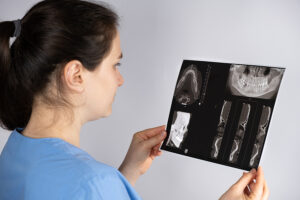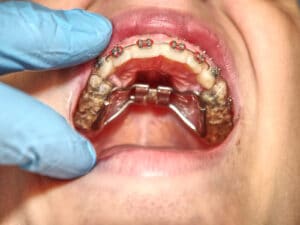Jaw surgery, also known as orthognathic surgery, is a significant procedure that corrects a variety of jaw and facial issues. These can range from correcting bite problems to improving facial aesthetics. While the benefits of jaw surgery are clear—improved function, appearance, and self-confidence—understanding the costs is crucial before deciding to proceed. The jaw surgery cost can vary widely depending on several factors. It’s not just about the surgery itself but also the preparations and follow-up care.
Factors Influencing Jaw Surgery Cost
Geographic Location
The location where you have your surgery plays a significant role in determining the overall cost. Urban areas, where there is greater access to specialized surgeons and high-end medical facilities, tend to have higher prices. In contrast, smaller cities or rural areas might offer lower costs due to fewer overheads. However, it’s important to note that a lower price doesn’t always mean the quality of care is reduced, but it can indicate differences in facilities or the surgeon’s level of experience.
Surgeon’s Experience & Reputation
Your choice of surgeon is another major factor in the jaw surgery cost. Highly experienced and renowned surgeons often charge more for their expertise. These professionals may have a reputation for handling complex cases or providing excellent outcomes, which is reflected in their pricing. While a highly qualified surgeon may cost more upfront, it can be worth considering their track record for successful surgeries, as it may reduce the risk of complications and the need for additional procedures later.
Complexity of the Procedure
Not all jaw surgeries are the same, and the complexity of your case can significantly affect the price. For instance, single jaw surgery (correcting only the upper or lower jaw) typically costs less than double jaw surgery, which involves both the upper and lower jaw. Other procedures, such as correcting jaw alignment in cases of severe deformities, may require more time in the operating room and specialized techniques, increasing the cost. It’s essential to have a clear understanding of the procedure your surgeon recommends and how that will affect the final price.
Hospital/Clinic Facilities
The type of medical facility you choose for your jaw surgery can also impact the cost. High-end hospitals and clinics often have advanced technology, luxury amenities, and experienced medical staff, all of which contribute to higher prices. On the other hand, more modest medical centers may offer lower costs, but this doesn’t necessarily mean a decrease in quality of care. Always research the reputation of the facility and ensure that it meets your standards for safety and comfort.
Insurance Coverage
If you have health insurance, your policy may cover part or all of the cost of jaw surgery, particularly if it is deemed medically necessary. For example, surgeries to correct severe bite issues or jaw misalignment that cause functional problems (such as difficulty chewing or breathing) are often covered. However, purely cosmetic surgeries, which aim to enhance the appearance of the face or jaw, might not be covered by insurance. It’s important to speak with your insurance provider before scheduling the surgery to understand what will be covered and what you’ll be expected to pay out-of-pocket. The amount covered by insurance can significantly lower the jaw surgery cost.
Average Jaw Surgery Cost Breakdown
Base Costs
The cost of jaw surgery can vary depending on a variety of factors, but on average, patients can expect to pay between $10,000 and $40,000 for the procedure. This range includes the surgeon’s fees, hospital fees, and anesthesia costs. For the simplest cases, such as a minor adjustment to the jaw, the cost tends to be on the lower end of the spectrum. More complex surgeries, such as double jaw surgeries, can push the cost significantly higher.
In addition to the surgery itself, there are other costs that should be considered. Initial consultations, diagnostic tests (such as X-rays or CT scans), and pre-operative evaluations all add to the base cost of the procedure. These tests help determine the exact nature of the jaw issue and allow the surgeon to plan the surgery appropriately. Most of these additional services can cost anywhere from $500 to $2,500.
Additional Costs
Beyond the base surgery cost, there are several additional expenses that should be taken into account:
- Anesthesia Costs: Anesthesia is a necessary part of the procedure, and the cost can vary depending on the type used and the length of the surgery. For jaw surgeries, anesthesia typically costs between $1,000 and $3,000.
- Post-Surgery Recovery: After the surgery, you’ll need follow-up appointments to ensure proper healing. These visits may include check-ups, adjustments, and possibly physical therapy to regain full function of your jaw. Depending on your recovery needs, these follow-up visits may cost anywhere from $200 to $1,500 each.
- Medications: Pain management after surgery is critical, and prescription medications such as painkillers or antibiotics can add to the cost. Expect to pay around $50 to $200 for these medications, depending on what is prescribed.
- Recovery Aids: In some cases, patients may need additional aids such as specialized pillows, orthodontic devices, or braces to help with recovery. These could add a few hundred dollars to the overall cost of the procedure.
Payment Options
For many patients, the cost of jaw surgery can be a significant financial burden. However, there are payment options available. Some hospitals and clinics offer financing plans or payment plans that allow patients to spread the cost over a period of time. This can be particularly helpful for patients without insurance or for those whose insurance doesn’t fully cover the procedure.
Personal loans or medical credit cards can also be used to finance the surgery, though they may come with interest rates and additional fees. If you are unable to afford the surgery upfront, it’s important to explore these financing options early to make the procedure more manageable. Always be sure to carefully review the terms and conditions of any financing agreement.
Example Cost Ranges
- Single Jaw Surgery: The cost typically ranges from $10,000 to $20,000.
- Double Jaw Surgery: For more complex surgeries involving both the upper and lower jaw, prices typically fall between $20,000 and $40,000.
- Additional Procedures: If you require other treatments such as chin implants or orthodontic adjustments, expect to pay more. These can add between $1,000 and $5,000 to the total cost.
How Insurance Affects Jaw Surgery Cost
What’s Covered by Insurance
Insurance can significantly reduce the out-of-pocket cost of jaw surgery, but coverage depends on whether the surgery is deemed medically necessary or cosmetic. When surgery is medically necessary—such as for correcting severe bite issues, difficulty breathing, or jaw misalignment that impacts daily function—it’s more likely to be covered. Insurance companies often require documentation from your surgeon explaining why the surgery is essential for your health, not just for cosmetic purposes.
In cases where surgery is considered cosmetic, such as improving the appearance of the jaw without any functional issues, insurance will typically not cover the cost. It’s important to know the distinction between functional and cosmetic procedures when discussing coverage with your insurance provider.
Out-of-Pocket Expenses
Even if your surgery is covered by insurance, there may still be costs that you need to pay out-of-pocket. These could include:
- Deductibles: The amount you must pay before your insurance coverage kicks in. Depending on your plan, this could range from a few hundred to a few thousand dollars.
- Co-pays: Your insurance might require a co-payment for specific services, like consultations or post-surgery visits. These can range from $50 to $200 per visit.
- Coinsurance: After your deductible is met, you might still need to pay a percentage of the cost for surgery and related treatments. This could be anywhere from 10% to 30% of the total cost.
What to Do If Insurance Doesn’t Cover Jaw Surgery
If insurance doesn’t cover your surgery, there are still options to manage the jaw surgery cost. Many hospitals and clinics offer financing options or payment plans that allow patients to pay for their surgery in installments. These plans can range from low-interest loans to deferred payment options, which can make it easier to afford the procedure.
How to Minimize Jaw Surgery Costs
Comparing Different Surgeons and Clinics
To minimize jaw surgery cost, compare prices from multiple surgeons and clinics. While it’s tempting to choose the lowest price, remember that experience and reputation matter. Cheaper options may increase the risk of complications, leading to higher costs later. Aim to balance cost with quality for the best value.
Insurance Tips
Maximize your insurance coverage by:
- Pre-authorization: Ensure your surgery is approved before proceeding.
- Network coverage: Choose in-network surgeons to lower out-of-pocket costs.
- Appeal denied claims: If your surgery is denied, appeal the decision with documentation.
- Supplemental insurance: Look into additional insurance options to cover gaps.
Financing and Payment Plans
Many clinics offer financing options, such as installment plans or deferred payments. Personal loans or medical credit cards are other ways to cover the cost, but ensure you understand the interest rates and repayment terms before committing.
Seeking a Second Opinion
Getting a second opinion can help confirm the necessity of the procedure and ensure you’re not overpaying. A different approach or less invasive surgery could lower your overall costs.
Additional Considerations: Recovery and Post-Surgery Costs
Recovery Time & Costs
Recovery may take several weeks and could involve lost wages or the need for assistance. Soft food diets and follow-up appointments will add to the cost of recovery, so be prepared for these additional expenses.
Medications & Pain Management
Post-surgery medications can cost $50 to $200 depending on prescriptions. Over-the-counter items like ice packs and bandages may also add small costs.
Long-term Costs
Jaw surgery could require further surgeries, braces, or therapy, which can increase overall expenses. Physical therapy and dental care are common long-term costs that need to be considered when budgeting.
Take the First Step Toward Your Perfect Smile
At Dr. Bob Bryan Orthodontics, we’ve been creating beautiful smiles for over 50 years. Whether you’re seeking treatment for yourself or a loved one, our experienced team in Allentown and Hamburg, PA, is here to provide the personalized care you deserve. We use advanced technology like Invisalign and digital scans to ensure your experience is efficient, comfortable, and effective.
Schedule your consultation today and discover how we can help you achieve a healthier, more confident smile!







